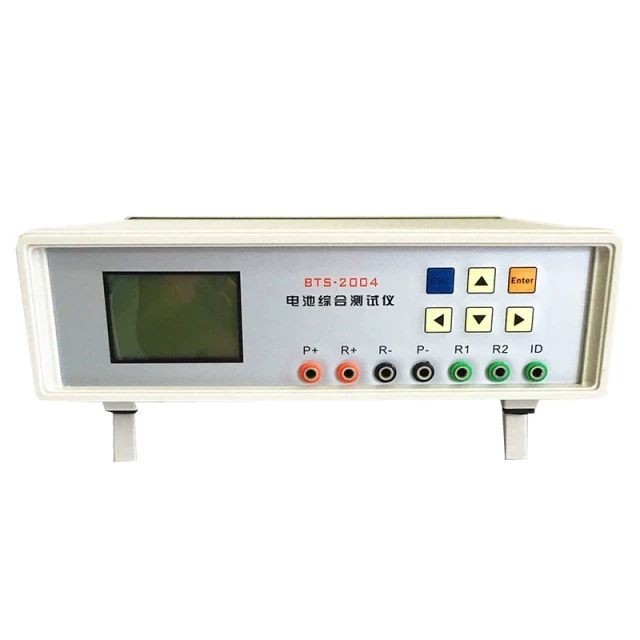
battery material
Battery Lab Equipment Battery Capacity and Comprehensive Tester
Item Number : BC-06
Price varies based on specs and customizations
Shipping:
Contact us to get shipping details Enjoy On-time Dispatch Guarantee.
Why Choose Us
Easy ordering process, quality products, and dedicated support for your business success.
Introduce
Scope of application can be tested: 18650 and other cylindrical and square lithium batteries, polymer batteries, nickel-cadmium, nickel-metal hydride batteries, lead-acid batteries, etc.
The basic functions of this tester include:
- Quick detection of battery static parameters: battery voltage detection (for lithium batteries that are already in a protected state, it can be automatically awakened); internal resistance detection; rechargeable performance detection; dischargeable performance detection; overcurrent detection (only for lithium batteries); internal Identification resistance 1 (or thermistor) detection; internal identification resistance 2 (or thermistor) detection; the above parts that can detect the value can be quickly screened by setting the upper limit and lower limit respectively; for various communication chips The battery can be tested for communication (this function is optional).
- Battery capacity detection.
- Individually selectable battery charging and discharging functions.
- Digitally controlled current and voltage source function.
- CNC electronic load function.
- Voltage and internal resistance meter functions.
- Instrument calibration function.
Detail & Parts
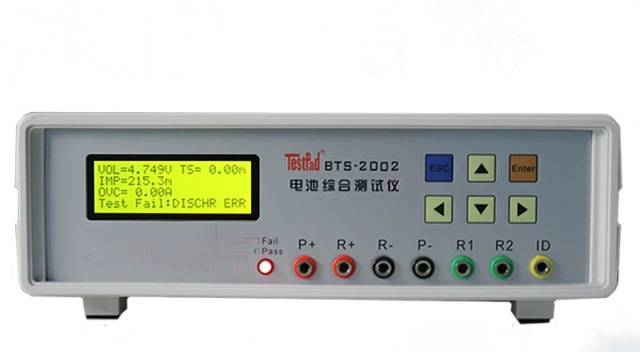
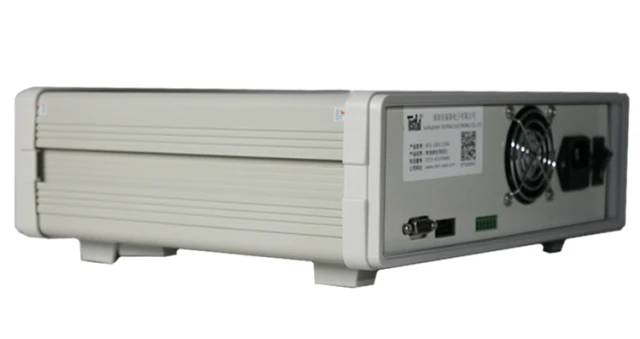
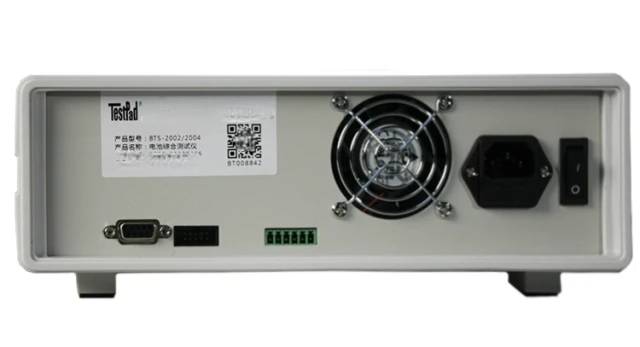
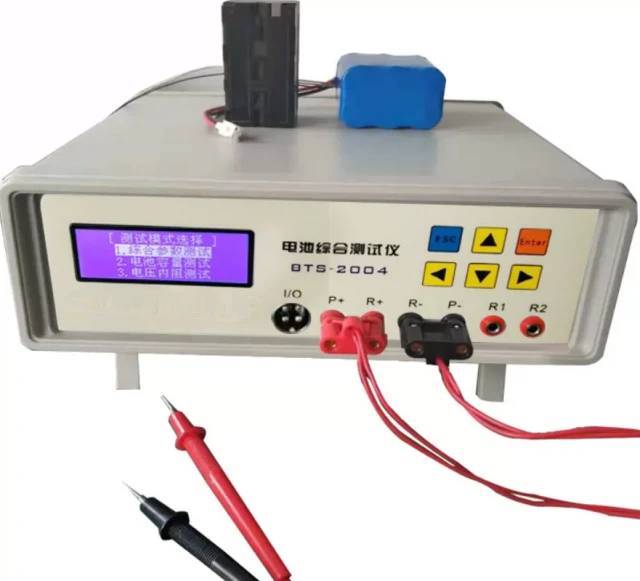
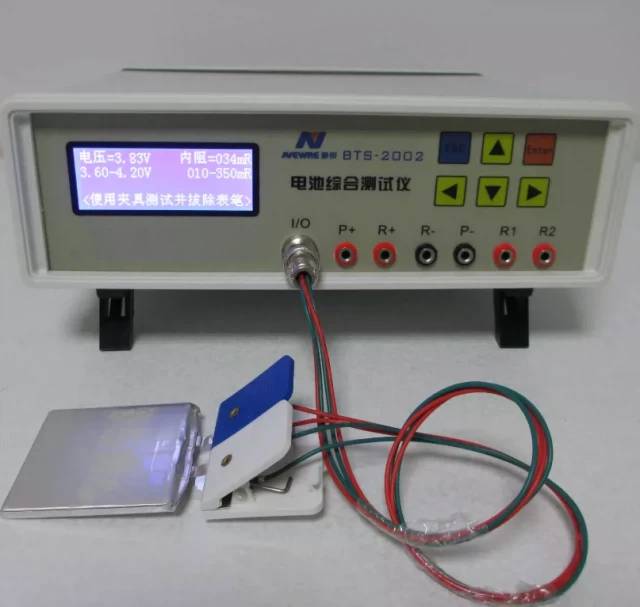
Technical specifications
| Model BC-06H | Model BC-06 | ||
| Measuring range: | Measuring range: | ||
| Battery voltage measurement range: | 0-10V accuracy 0.001V resolution 1mV | Battery voltage measurement range: | 0 ~ 10V minimum resolution 10mV |
| Charge and discharge current test range: | 5mA-2000mA accuracy 0.001A resolution 1mA | Current measurement range: | 0~12A Minimum resolution 1mA |
| Battery overcurrent measurement range: | 0.-20A resolution 0.01A | Internal resistance measurement range: | 0~1000 mΩ, minimum resolution 1mΩ |
| Internal resistance measurement range: | 0~999mΩ resolution 1mΩ | Identification resistance measurement range: | 0.1~999.9KΩ minimum resolution 0.1KΩ |
| Resistance measurement range: | 0.1~999.9KΩ resolution 0.1KΩ | Capacity measurement range: | 0 ~ 10000mAH minimum resolution 1mAH |
| Capacity measurement range: | 0~60000mAh resolution 1mAh | ||
| Test speed: | Test speed: | ||
| Static test 6 items (voltage, internal resistance, short circuit protection, charging, discharging, overcurrent): | 0.1-0.3 seconds | Static test (tests all functions): | 0.4-0.5 seconds |
| Capacity test (1C current charge and discharge): 3~4 hours | 3~4 hours | Capacity test (1C current charge and discharge): | 2 to 3 hours |
| measurement accuracy: | |||
| 1) Voltage measurement accuracy: | ±0.01%FS+2 words (10V) | ||
| 2) Current measurement accuracy: | ±0.1%FS+2 words (2A) | ||
| 3) Overcurrent measurement accuracy: | ±1%FS+2 words (20A) | ||
| 4) Internal resistance measurement accuracy: | ±1%FS+1mΩ | ||
| 5) Identification resistance measurement accuracy: | 100KΩ±1% | ||
| 6) Battery capacity measurement accuracy: | 60AH±×1% | ||
| Applicable environment of the instrument: | |||
| Temperature: | 0~40℃ | ||
| Use altitude: | Use within 2Km above sea level | ||
| Relative humidity: | 40-80% humidity | ||
| Basic parameters | |||
| Power supply voltage: | 220V±10% 50Hz | ||
| Power consumption: | up to 50W | ||
| Instrument size: | L (285mm)×W (240mm)×H (85mm) | ||
| Outer packing size: | L (320mm)×W (300mm)×H (160mm) | ||
Trusted by Industry Leaders

FAQ
What Types Of Batteries Can Be Tested Using A Battery Comprehensive Tester?
What Are The Main Types Of Battery Materials?
What Are The Main Functions Of A Battery Internal Resistance Tester?
What Are The Applications Of Battery Materials?
What Is The Purpose Of An 8-channel Battery Sub-container Capacity Tester?
How Do Battery Materials Enhance Battery Performance?
What Does A Handheld Lithium Battery Analyzer Do?
What Is The Role Of Polyethylene Separators In Lithium-ion Batteries?
What Is The Function Of A Cylindrical Battery Steel Case?
Why Are Conductive Carbon Cloths/papers/felts Important In Battery Applications?
What Are The Advantages Of Using Aluminum-plastic Flexible Packaging Films For Lithium Batteries?
How Does The Lithium Cobaltate Material Contribute To Battery Performance?
What Is The Function Of Battery Internal Resistance Testers?
Why Are Nickel-aluminum Tabs Important In Battery Manufacturing?
4.8 / 5
Lightning fast delivery, very happy with the KINTEK SOLUTION tester!
4.7 / 5
Great value for money, does exactly what it says on the tin.
4.9 / 5
Excellent quality and build, very sturdy and reliable.
4.8 / 5
Durable and long-lasting, still going strong after years of use.
4.7 / 5
Cutting-edge technology, makes battery testing a breeze.
4.9 / 5
Great product, highly recommended for anyone working with batteries.
4.8 / 5
Very satisfied with the KINTEK SOLUTION tester, makes my job easier.
4.7 / 5
Excellent customer service, very responsive and helpful.
4.9 / 5
Intuitive and user-friendly interface, easy to operate.
4.8 / 5
Very accurate and reliable, gives consistent results every time.
4.7 / 5
Great value for money, very affordable for the features it offers.
4.9 / 5
Highly recommended, a must-have tool for any battery lab.
REQUEST A QUOTE
Our professional team will reply to you within one business day. Please feel free to contact us!
Related Products
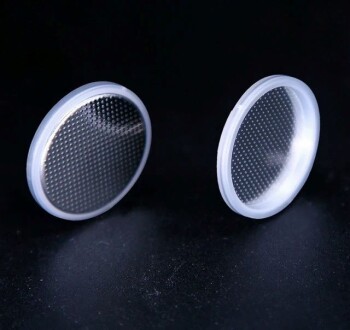
Button Battery Case for Battery Lab Applications
Button batteries are also known as micro batteries. It looks like a small button-shaped battery. Usually larger in diameter and thinner in thickness.
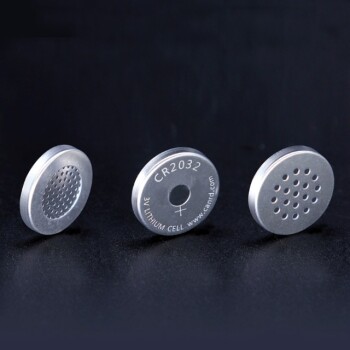
Li-Air Battery Case for Battery Lab Applications
Lithium air battery (lithium oxygen battery) dedicated battery box. The positive electrode is punched from the inside out, and the inside is smooth.
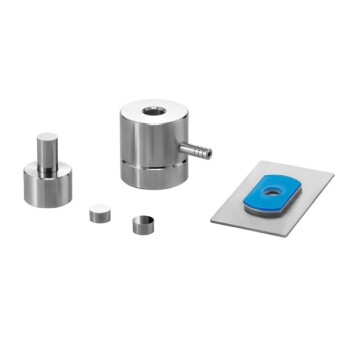
Lab Infrared Press Mold
Easily release samples from our lab infrared press mold for accurate testing. Ideal for battery, cement, ceramics, and other sample preparation research. Customizable sizes available.

High Purity Zinc Foil for Battery Lab Applications
There are very few harmful impurities in the chemical composition of zinc foil, and the surface of the product is straight and smooth; it has good comprehensive properties, processability, electroplating colorability, oxidation resistance and corrosion resistance, etc.

Conductive Carbon Cloth Carbon Paper Carbon Felt for Electrodes and Batteries
Conductive carbon cloth, paper, and felt for electrochemical experiments. High-quality materials for reliable and accurate results. Order now for customization options.

Manual High Temperature Heated Hydraulic Press Machine with Heated Plates for Lab
The High Temperature Hot Press is a machine specifically designed for pressing, sintering and processing materials in a high temperature environment. It is capable of operating in the range of hundreds of degrees Celsius to thousands of degrees Celsius for a variety of high temperature process requirements.

Automatic High Temperature Heated Hydraulic Press Machine with Heated Plates for Lab
The High Temperature Hot Press is a machine specifically designed for pressing, sintering and processing materials in a high temperature environment. It is capable of operating in the range of hundreds of degrees Celsius to thousands of degrees Celsius for a variety of high temperature process requirements.
Related Articles

Comprehensive Guide to Handheld Lithium Battery Analyzers: Features, Applications, and Maintenance
Explore the advanced capabilities of handheld lithium battery analyzers, including their use in quality control, recycling, and resource analysis. Learn about daily maintenance and industry applications.

Revolutionizing Quality Control: The Ultimate Guide to Handheld Lithium Battery Analyzers
Explore the advanced features and applications of handheld lithium battery analyzers, including 24/7 operation, fast analysis, and precise elemental composition. Ideal for mass production and quality control in various industries.

The Geometry of Control: Inside the Super-Sealed Electrolytic Cell
Why the 10-100ml volume and 5-aperture design became the gold standard for electrochemical precision, and how to choose the right setup.

The Architecture of Stability: Mastering Control with Double-Layer Electrolytic Cells
Chemistry is a battle against variables. Discover how double-layer electrolytic cells (30ml-1000ml) provide the thermal and atmospheric control you need.

The Art of Isolation: Why Super-Sealed Cells Define Modern Electrochemistry
Discover how super-sealed electrolytic cells eliminate environmental variables, ensuring precision in battery testing, corrosion research, and chemical synthesis.

The Anchor of Truth: Why Physical Stability Defines Electrochemical Success
In electrochemistry, data integrity begins with physical stability. Discover why securing your electrolytic cell is the most critical step in your experiment.

The Invisible Variable: Why Electrolytic Cell Hygiene Defines Your Data
Proper electrolytic cell maintenance prevents dangerous reactions and ensures data integrity. Learn the critical "no metal brush" rule and safety protocols.

The Thermodynamics of Patience: Preventing Electrolytic Cell Overload
Overloading an electrolytic cell isn't just an error; it's a systemic failure. Learn the physics of safety, the risks of excess energy, and how to maintain control.

The Geometry of Control: Why 1 cm² Defines Electrochemical Success
Discover why the standard 1 cm² reaction area and precision O-ring sealing create the necessary baseline for repeatable, accurate electrochemical data.

The Invisible Variable: Mastering the Art of Electrolytic Cell Integrity
Data reliability relies on more than just theory. Discover the systematic maintenance protocol—pre-check, monitoring, and cleaning—that guarantees precision.

The Symphony of Coefficients: Why Your Electrolytic Cell Cannot Be a Monolith
Glass withstands heat; PTFE does not. Understanding the thermal conflict in five-port electrolytic cells is key to preventing equipment failure.

The Art of the Sealed System: Mastering the Five-Port Electrolytic Cell
Mastering the five-port electrolytic cell requires more than just chemistry; it demands a systematic approach to connections, temperature, and atmospheric control.